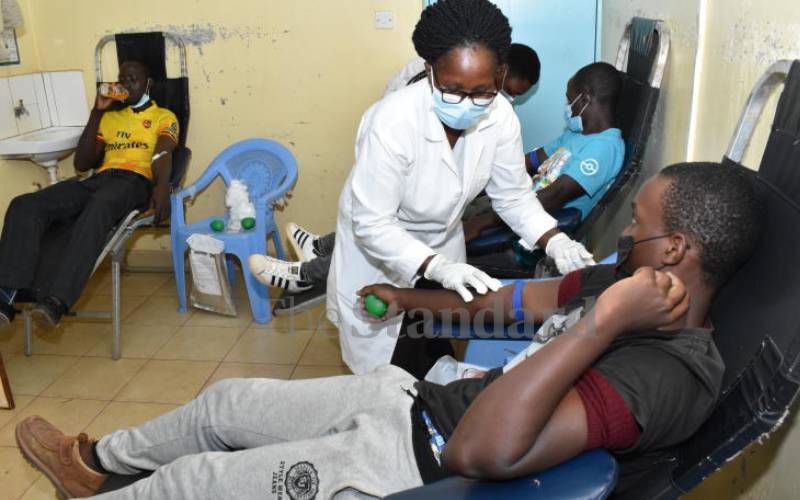×
The Standard e-Paper
Join Thousands Daily

Expectant fathers donating blood at Thika Level Five hospital, March 1, 2022. [Samson Wire, Standard]
Kevin Thiong’o, a resident of Juja, woke up early to accompany his wife for Antenatal care (ANC) at Thika Level Five Hospital.